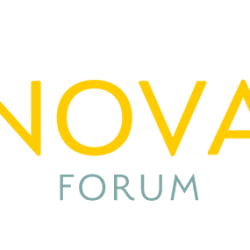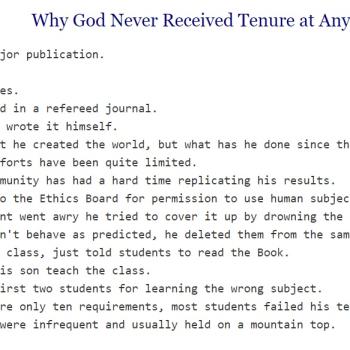In this episode (one of the earliest I recorded, but which I delayed releasing so as to have a mix from the outset of conversations with guests from among my Butler University colleagues, from the wider Indianapolis community, and from further afield) I chat with my colleague in the Center for Academic Technology, Megan Grady-Rutledge, following up on a project we collaborated on last year, a Digital Humanities reading and discussion group for faculty from all across the university.
Below, I have included some links related to a number of topics that we discuss on the podcast. One is a question that I’ve asked here before as well as elsewhere on social media: What can a conference do – a traditional, face to face conference – that a blog or online collaboration cannot do better? That’s a question I often ask myself, not because I have to, strictly speaking, but because I feel the need to have an answer well articulated before university administrators ask it with a view to cutting funding to support faculty traveling to conferences. Of course, administrators attend conferences too, and that in itself might safeguard the funding and ensure that they see the value in such travel – assuming, of course, that the sorts of conferences they attend are as rewarding for them as our conferences can be for us as academics involved in teaching and research rather than (or as well as) administration.
Connor Wood addressed this very subject on his blog recently, albeit tangentially as he reflected on his experience of attending a conference:
That term, “networking,” generally comes with a connotation of dreary obligation – something professional people have to do in order to scramble their way up the ladder of success toward, I don’t know, death. But networking at the IACSR meeting isn’t like that at all. How you network at IACSR is, you find people who are working on a really cool thing that’s relevant to the really cool thing you’re working on, and then everyone gets giddily excited to have found someone to talk with about this topic that no one in their respective daily lives cares one iota about. Then you spend all of the lunch hour happily swapping ideas, spitballing experimental designs, and recommending recent papers for the others to read. A year and a half later, a co-authored paper is forthcoming.
This is really the best thing about scientific conferences, and the reason they play such a central role in scientific life. Scientists of all kinds are oddities: we tend to study very narrow slices of the great big mess we call “reality,” and there aren’t very many of us, relative to the population. This means that any given city or university can only support, at the most, a single handful of specialists in any given sub-discipline. So your only chance to meet up in person with the few dozen other people in the world who are fanatically excited about the same thing as you is to go to conferences, where everyone flies in from around the planet to a single location and happily pays far too much for drinks.
The Religious Studies Podcast also explored the question of what academic conferences are for. It gave me a good idea for one possible answer for me personally – to sit down with other academics and record podcast episodes!
Of related interest, David Miller asked what his blog is for, and Inside Higher Ed had an article about the intersection of the Digital Humanities with activism.













